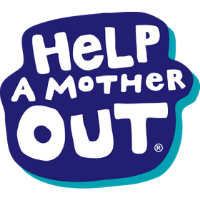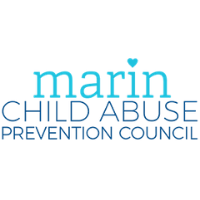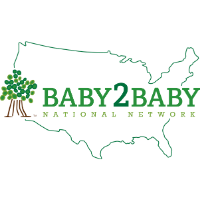
The holidays we celebrate serve as an important reminder to be thankful for what we have – including each other. However, holidays can also be a difficult time for many families, and heightened stress and tension can highlight our human flaws. Although many people are looking forward to gathering in person with friends and family, others might be feeling worried or anxious about the increased risk for illnesses, social awkwardness, or heated debates turning into arguments and hurt feelings. Holidays can quickly become something “to get through” instead of a time for reflection and celebration. Sound familiar?
Dear CPI,
I have several family members visiting us over the holidays, which means my kids (ages 3 and 7) will be excited, but their lives will be disrupted for a while. My kids already have meltdowns when they get overexcited or their routines are disrupted – and I know that will happen when we have visitors. I’m already feeling stressed out. What can I do?
Oscar
Dear Oscar,
Many children and adults love the excitement and special activities during the holidays, but it can also be a stressful time. Hectic schedules, endless errands, high expectations, tight budgets, family conflict, or different personal and political beliefs can all create enormous pressure on parents and caregivers. Holidays can be hard for children, too, if they get bored, tired, hungry, over-stimulated or overwhelmed. Children often communicate their needs and feelings through behaviors such as whining, complaining, tantrums and refusing to follow directions — adding to parents’ stress. Here are a few tips to try:
Maintain your children’s daily routines for eating, sleeping, and playing. The predictability of daily routines helps children feel secure and can prevent meltdowns caused by being tired, hungry, over-stimulated, or overwhelmed. Ask family members about their plans for mealtimes, exchanging gifts, or other activities while they’re visiting, and let them know about your children’s schedules. This allows you to discuss whether any plans can be modified so your children can participate, or at least helps others understand that your children may have to follow a different schedule than the adults.
Talk to your children about your holiday plans. Talk about which relatives will be visiting and when, as well as any important family, cultural, or religious traditions. If they haven’t met any relatives yet, show them pictures and describe how they’re related to your family. If other children will be visiting, talk about and then practice sharing toys. You may want to let your kids pick a few special toys that they don’t have to share and put them away before visitors arrive. Talking with children not only increases their vocabulary and thinking skills, but also gives them a “mental picture” of what to expect, which helps prepare them to face unfamiliar situations.
Have simple, engaging activities ready for your children. This helps prevent meltdowns caused by boredom or restlessness. Be ready with a variety of healthy snacks, books, and games for kids to play together. Watch for cues that your kids are getting restless, need a change of pace, or need a break from being around a lot of people. And a modest amount of age-appropriate screen time (TV, movies, video games, computer) can give both children and parents a much-needed break after constant activities and socializing.
Encourage the behavior you want to see more of. Give your children descriptive praise when they are being kind, helping others, following family rules, or expressing their feelings appropriately. This shows them you notice and appreciate their efforts and encourages them to keep it up.
Take time for yourself. Being a parent is already a hard job that can become even more stressful during the holidays, especially when you’re hosting visitors. It’s important to find ways to relieve stress before it affects your ability to enjoy the holidays with your family. If possible, ask another family member to watch your children so you can do something you enjoy, such as catching up with a relative, getting some exercise or sitting in a quiet room by yourself.
Final thoughts: Holidays provide special opportunities to enjoy quality family time, but they can also add stress and pressure for many families. Try a few of these positive parenting strategies to help you and your family fully enjoy the holidays.
CPI's monthly parenting article provides tips for families raising children, based on the world-renowned Triple P – Positive Parenting Program, available in Sonoma County at CPI. If you have a question or idea for a future column, please email anneb@calparents.org
This article is created by Nicole Young, the mother of two children, ages 17 and 21, who also manages Santa Cruz County's Triple P - Positive Parenting Program. Scientifically proven, Triple P is available locally through the Child Parent Institute. Our classes are listed at calparents.org/classes.
EN ESPANOL
Los días festivos que celebramos sirven como un recordatorio importante de agradecer lo que
tenemos – incluyendo el uno al otro. Sin embargo, los días festivos también puede ser un
período difícil para muchas familias, y el aumento de estrés y tensión puede recalcar nuestros
defectos humanos. Aunque muchas personas esperan reunirse en persona con amigos y
familiares, otras pueden sentirse preocupadas o ansiosas por el mayor riesgo de enfermedades,
la incomodidad social o los debates acalorados que se convierten en discusiones y sentimientos
heridos. Las celebraciones festivas pueden convertirse rápidamente en algo que “tenemos que
sobrevivir” en lugar de ser un período de reflexión y celebración. ¿Se le hace conocido?
Estimada CPI,
Varios miembros de mi familia nos visitarán durante las fiestas, lo que significa que mis hijos (de
3 y 7 años) estarán emocionados, pero sus vidas se verán afectadas por un tiempo. De por sí mis
hijos ya tienen berrinches cuando están demasiado emocionados o se interrumpen sus rutinas, y
sé que eso pasará cuando tengamos visitas. Ya me siento estresado. ¿Qué puedo hacer?
- Oscar
Estimado Oscar,
A muchos niños y adultos les encanta la emoción y las actividades especiales durante los días
festivos, pero también puede ser un período estresante para ellos. Los horarios caóticos, los
mandados sin fin, las altas expectativas, los presupuestos limitados, el conflicto familiar o
diferentes creencias personales y políticas pueden causar mucha presión para los padres y
cuidadores. Los días festivos pueden ser difíciles para los niños también, si se aburren, o se
cansan, o están hambrientos, o sobre estimulados, o abrumados. Los niños a menudo
comunican sus necesidades y sentimientos por medio de las conductas tales como el lloriqueo,
los berrinches y rehusarse a seguir instrucciones – lo cual aumenta aún más al estrés de los
padres. Estas son algunas recomendaciones que puede intentar:
Mantenga las rutinas diarias de comer, dormir y jugar de los niños. La previsibilidad de las
rutinas diarias ayuda a los niños a sentirse seguros y puede prevenir los berrinches causados
por estar cansados, con hambre, demasiado estimulados o abrumados. Pregunte a sus
familiares sobre sus planes para las comidas, los intercambios de regalos, u otras actividades
mientras estén de visita, y hágales saber sobre los horarios de sus niños. Esto le permite hablar
sobre si ciertos planes pueden ser modificados para que sus niños puedan participar, o por lomenos les ayuda a comprender que quizás sus niños tengan que seguir un horario diferente al
de los adultos.
Hable con sus niños sobre los planes para los días festivos. Hable sobre cuáles familiares
vendrán de visita y cuándo, así como sobre cualquier tradición familiar, cultural o religiosa
importante. Si aún no han conocido a estos familiares, muéstreles fotos y describa cómo se
relacionan con su familia. Si vendrán otros niños de visita, hablen y luego practiquen compartir
juguetes. Es posible que desee dejar que sus hijos escojan algunos juguetes especiales que no
tienen que compartir y guardarlos antes de que lleguen las visitas. Hablar con los niños no solo
aumenta su vocabulario y habilidades de pensar, sino también les da una “imagen mental” de
lo que deben esperar, lo cual los ayuda a enfrentar situaciones poco familiares.
Tenga actividades sencillas e interesantes listas para los niños. Esto ayuda a prevenir los
berrinches causados por el aburrimiento o la inquietud. Esté preparado con una variedad de
botanas saludables, libros y juegos para que los niños jueguen juntos. Esté atento a las señales
de que sus hijos se estén volviendo inquietos, necesiten un cambio de ritmo o necesiten un
descanso de estar rodeados de mucha gente. Y permitir que los niños tengan un tiempo
limitado de pantalla apropiada para su edad (televisión, películas, videojuegos, computadora)
les puede dar un descanso tanto a los niños como a los padres después de socializar y estar
constantemente activos.
Anime la conducta que usted desea ver más seguido. Deles a sus niños reconocimiento
descriptivo cuando son generosos, ayudan a otros, siguen las reglas familiares o expresan sus
sentimientos apropiadamente. Esto les demuestra que usted nota y aprecia sus esfuerzos y los
anima a seguir haciéndolo.
Tome tiempo para sí mismo/a. Ser padre o madre de familia de por sí ya es un trabajo difícil
que se puede volver aun más estresante durante las fiestas, sobre todo cuando uno tiene visitas
en casa. Es importante encontrar maneras de aliviar el estrés antes de que afecte su habilidad
de disfrutar las celebraciones con su familia. Si es posible, pídale a otro miembro de su familia
que cuide a sus niños para que usted pueda hacer algo que disfrute, como hablar con otro
familiar y ponerse al día, hacer ejercicio o sentarse en silencio en un cuarto usted solo/a.
Reflexiones finales: Las celebraciones festivas proveen oportunidades para disfrutar tiempo de
calidad familiar, pero también pueden causar más estrés y presión para muchas familias.
Intente algunas de estas estrategias de paternidad positiva para ayudarle a usted y a su familia
a disfrutar en pleno los días festivos.
El artículo mensual sobre crianza de CPI proporciona consejos para las familias que crían niños, basados en el programa de crianza positiva Triple P de renombre mundial, disponible en el condado de Sonoma en CPI. Si tiene una pregunta o idea para una columna futura, envíe un correo electrónico a anneb@calparents.org
Este artículo fue creado por Nicole Young, madre de dos niños, de 17 y 21 años de edad, quien también administra el Programa de Paternidad Positiva Triple P del condado de Santa Cruz. Científicamente probado, Triple P está disponible localmente a través del Child Parent Institute. Nuestras clases se enumeran en calparents.org/classes.










